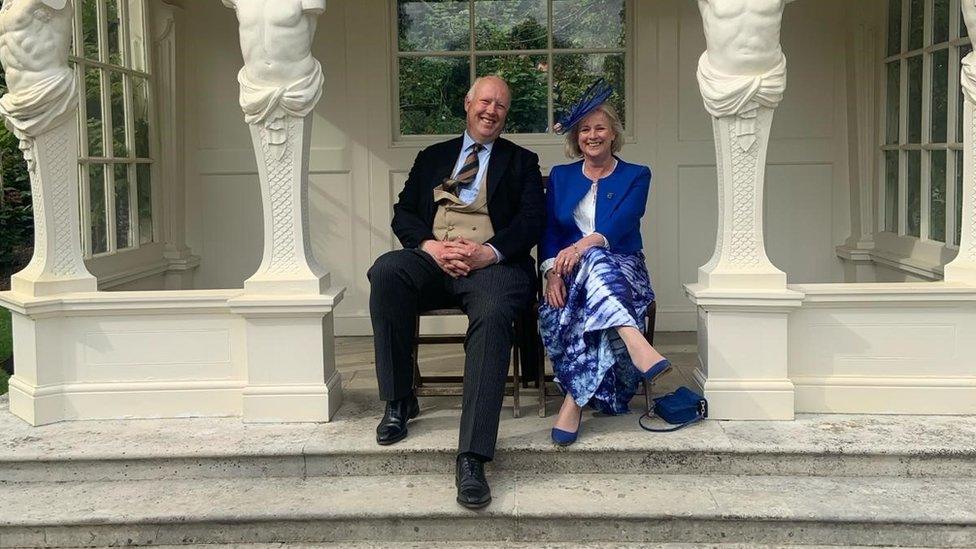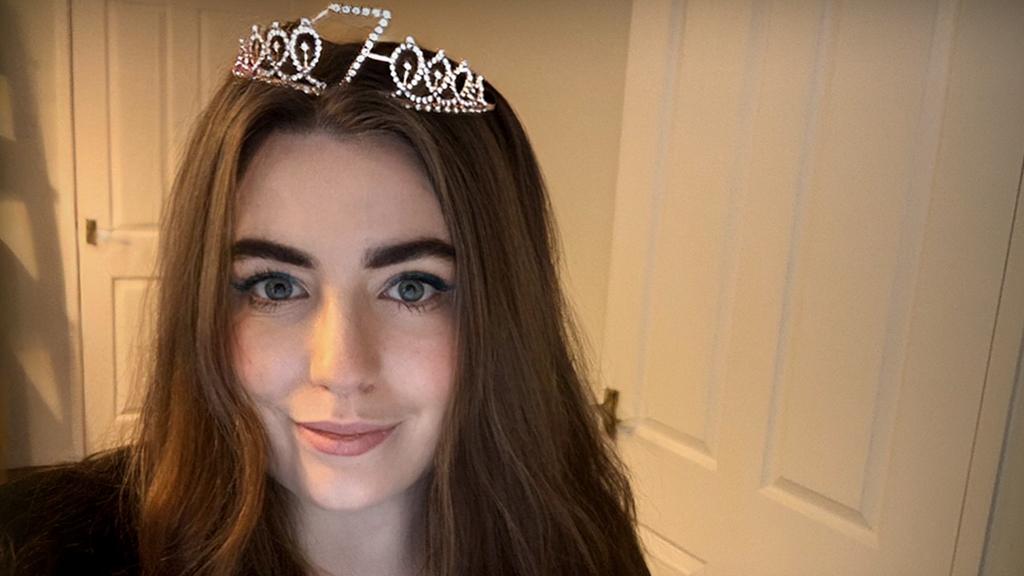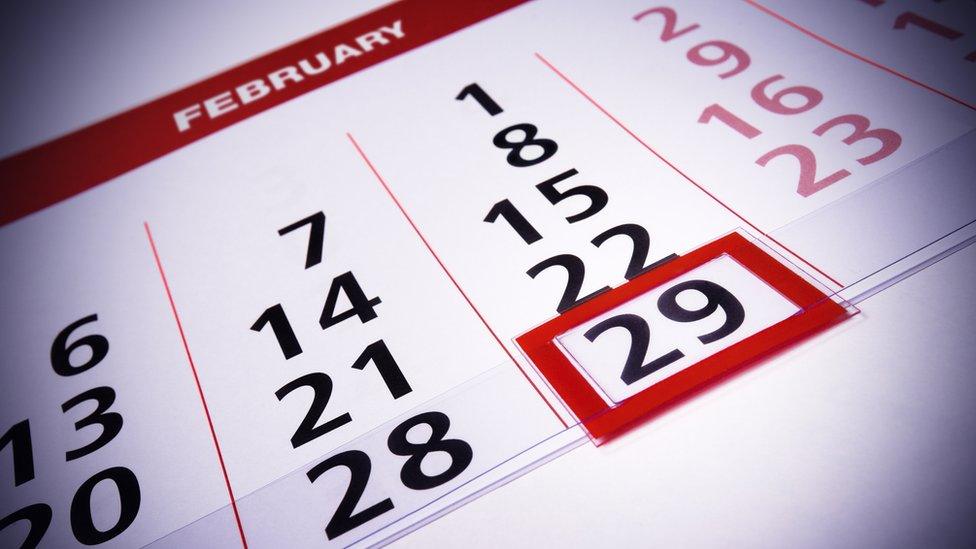Leap year 2024: Chelmsford MP tells of 'nerve-wracking' proposal
- Published

Chelmsford MP Vicky Ford proposed to her then partner Dr Hugo Ford during a meal on 29 February 1996
A politician who proposed to her husband on a leap year said she was "deeply in love and didn't want to let him go".
Vicky Ford, the Conservative MP for Chelmsford, popped the question to her partner Dr Hugo Ford while they were out for a meal on 29 February 1996.
An old tradition dating back to the 5th century suggested a leap day was the only time women could propose.
Mrs Ford said at the time "it was a very nerve-wracking thing to do".
The pair met while studying at the University of Cambridge and now have three children together.

Dr Hugo and Vicky have been married for almost 30 years since her proposal
Mrs Ford, 56, said she gave Dr Ford a pair of cufflinks that were in the shape of a knot and asked him if he would tie the knot while they were out for a meal.
"He said to me: 'Could you just wait until after we've finished our main course?'," she laughed.
The politician said Dr Ford had been focused on caring for his ill mother and she wanted to "take that bit of pressure off his mind".
"At the back of my mind I also knew this was a man I was deeply in love with and I didn't want to let him go," Mrs Ford added.
"I thought I'm only going to get one chance every four years to pop the question, so I'll pop the question and see what happens - and he said yes."
Mrs Ford said they wed after just two months of being engaged and said it made a "really happy memory" for her husband's mother.
"I strongly recommend marriage for those who are minded to do it, it's the most wonderful thing," she added.

What is a leap year and why do we have them?
It takes the Earth 365 days, five hours, 48 minutes and 46 seconds to orbit the sun. This extra five hours, 48 minutes and 46 seconds needs to be taken into account, otherwise the seasons would gradually shift and summer could eventually end up starting in January
Leap years occur in the calendar every four years to help make this adjustment, but the maths still doesn't quite work out. So, every 100 years, we skip a leap year - unless the year is divisible by 400. The next leap year to be skipped will be 2100
The phrase "leap year" is used because every date on the calendar jumps forward by an extra day. So if your birthday was on a Monday last year, it would leap over the next day and be on Wednesday this year.

Follow East of England news on Facebook, external, Instagram, external and X, external. Got a story? Email eastofenglandnews@bbc.co.uk or WhatsApp 0800 169 1830
Related topics
- Published29 February 2024

- Published29 February 2024

- Published27 February 2024

- Published29 February 2020
